Conference Theme
The School of Economics and Social Sciences (SESS), in collaboration with the Center for Business and Economics Research (CBER) at IBA, opens the general submissions' call for papers for its 2nd international conference. The theme for this year recognizes the diversity within Social Sciences and Humanities and the need to be critical of our sources of knowledge. We understand that different perspectives, methodologies and frames of reference create a more nuanced understanding of social change, and we invite scholars from a wide range of disciplines to share their work.
To submit abstract, click here
Following are the sub-themes of the conference
Many economies are struggling for sustainable growth, and this has been further challenged because of the COVID-19 pandemic. Scholars are asked to identify reform strategies to support a sustainable growth trajectory. Innovation is vital for such reforms, and we also welcome papers on knowledge creation and transfer, diffusion, and other related issues helpful for understanding the growth process.
Technology transfer and adoption, competitiveness, globalization, skill level of workers, and innovation are important for firms' growth and product development. Cost of doing business and changes in regulations are another aspect which requires an in-depth analysis. The related technical sessions will create a debate around these firm level issues and suggest transformative measures for better markets and competitiveness.
This subtheme invites contributions that attempt to unravel labor processes and their social and economic implications from the disciplines of history, economics, and anthropology. Providing social protection, wellbeing of workers and job security are gigantic issues with present demographic trends in Pakistan and many other countries. To address such concerns, we also welcome papers on the themes of labor market legislations including but not limited to, debates around, minimum wages, collective bargaining, contracts and health and safety issues etc.
Agriculture and food system's reliance on climatic resources make them highly vulnerable to climatic changes and pose serious challenges not only to the local, national, and global food security but also to agro-economies. These challenges further aggravate as individuals and societies exhibit varying capacities to adapt. Research contributions that explore economic, cultural, political, and institutional dimensions of Agriculture, Food Security and Climate Change nexus to enhance our understanding of different adaptation and mitigation proposals are invited under this theme
How do economic preferences play out in domestic and international politics? How do labor and capital mobilization affect trade and immigration? What is the relationship between public spending and voter preferences? What are effective accountability measures and are they relevant for public opinion? This broad sub-theme invites general submissions on issues dealing with politics and economic regulations, broadly defined. We especially welcome submissions that engage in feminist, Marxist, and historical institutional critiques, and those that focus on the Global South.
This sub-theme invites studies that explore inequalities in the way global health systems are designed around the world. Do inequalities in health care provision lead to economic inequalities? Can improved collaboration between health sectors in the developing and developed countries strengthen global health care provision? What are the long-term welfare costs of children being stunted in low-income countries? How effective is the response of the health sector to the COVID-19 pandemic? We also welcome studies related to economic valuation of life and quality of health, especially in the context of COVID-19.
What shapes human behavior? How do attitudes towards race, ethnicity, gender, and other identities develop and how do they reflect in action? What elements impact your sense of belongingness and group identity? How do group dynamics impact behavior and decision making at the macro level, the meso level (e.g., social networks), and the individual level, and are these connections context-specific? This is a broad subtheme that invites research from disciplines such as psychology, entrepreneurship, leadership, and gender working in issues related to human behavior.
The framework of development has received scathing criticism from feminist, critical race, postcolonial, and decolonial scholars for jeopardizing the very margins and marginal groups (such as women, ethnic groups, religious minorities, unemployed, and those living with minimal means and resources) that it seeks to address. We invite papers that address development and developmentalism from anti-racist, anti-imperialist, postcolonial, decolonial and feminist perspectives. While we are interested in critical perspectives, we also welcome approaches that challenge and reconfigure existing developmental frameworks
How has social change been imagined through literary and visual registers? How is digital media changing and reinforcing those registers? How do media aid or challenge the developmentalist narratives and discourses? How do developmental discourses shape and reshape cultures? Can old and new media help reimagine and redirect change? We welcome papers that address these broader questions in and across the disciplines of media studies, visual art, film studies, art history, critical/cultural studies, and comparative literary studies.
Development is a process that shapes and is shaped by the human experience. The importance of informal institutions including norms, beliefs, traditions, and values for development has recently attracted quite a bit of scholarship. Language has also been identified as major area for development research. Approaching development from a human development perspective, this broad sub-theme welcomes papers that conceive Development as a process beyond economic growth. We especially encourage papers that challenge traditional views on development or use a post-colonial institutional lens.
Travel and accommodation funding available for presenters.
Conference Highlights
- An overwhelming response of more than 325 submissions globally with 60 international submissions
- Selected papers have been passed through a rigorous double-blind peer-review process to ensure objectivity
- Presenting more than a 100 research papers
- Full scholarships to 100 students to attend the conference from more than 15 cities including Skardu, Malakand, Chitral, Lasbela, Quetta, Nawabshah, Larkana, and others
- Program flow will include 2 keynotes, 6 distinguished guest panels, 22 Technical Sessions, Doctoral Symposium, poster competition and student circles
- Including diverse disciplines including Economics, Psychology, Media studies, Political Science, Literature, Art, History and Wellbeing
- Cash prizes will be given to the best technical papers, doctoral presentation and posters session
- Heavy focus on diversity and inclusivity of presenters
- Accommodation and support network provided to outstation presenters and guests
- A fully accessible conference with support from Disability Rights activists including wheelchair access, braille and alternative formats for the program and a discussion on the inclusion of persons with disabilities
- A day care service for all three days to support participating parents
- Supported by sponsors from the Development, Private and Government sectors
Conference Organizers
Our 2nd International Annual Conference is a collective effort involving diverse groups of people within the IBA community. We are thankful to our organizers, who include faculty members, staff, and students, for collectively making this year’s academic conference possible.
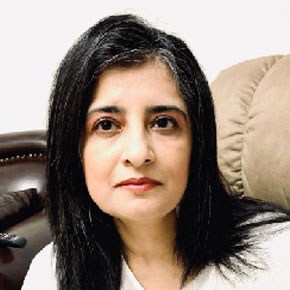 Dr Asma Hyder
Dr Asma Hyder
 Dr Laila Farooq
Dr Laila Farooq
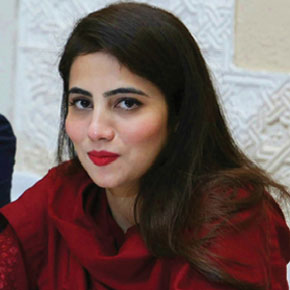 Sarah Nizamani
Sarah Nizamani
 Hasaan Anwar Mohiuddin
Hasaan Anwar Mohiuddin
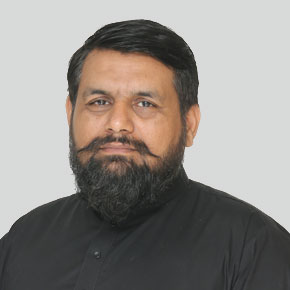 Khurram Iqbal
Khurram Iqbal
 Waniya Suhail
Waniya Suhail
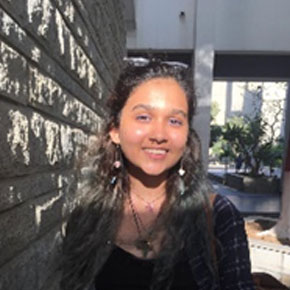 Safina Azeem Qureshi
Safina Azeem Qureshi
 Sameen Ahmed
Sameen Ahmed
 Aman Razi Kidwai
Aman Razi Kidwai
 Syed Abdul Azeem
Syed Abdul Azeem
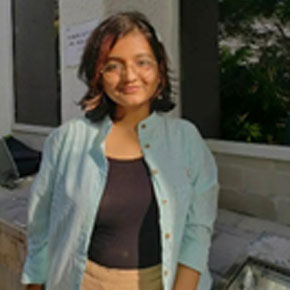 Wara Irfan
Wara Irfan
 Kaleemullah Bashir
Kaleemullah Bashir
 Muhammad Sohaib
Muhammad Sohaib
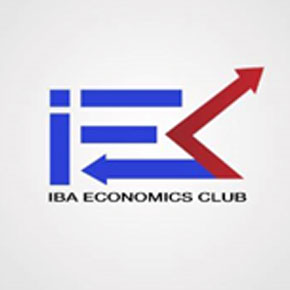 IBA Economics Club
IBA Economics Club
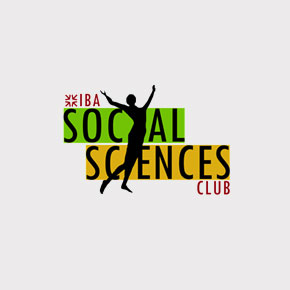 IBA SSLA Club
IBA SSLA Club

